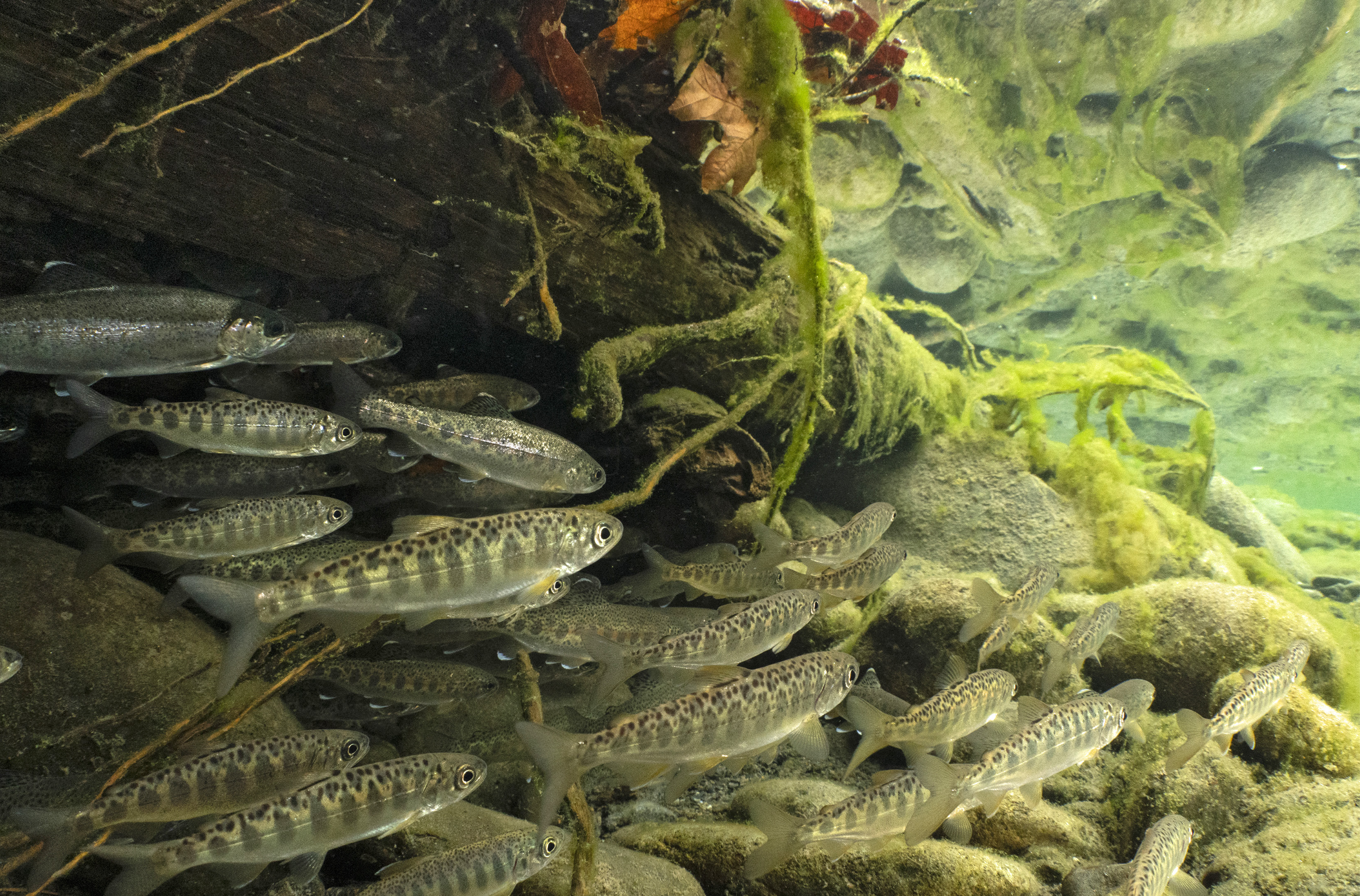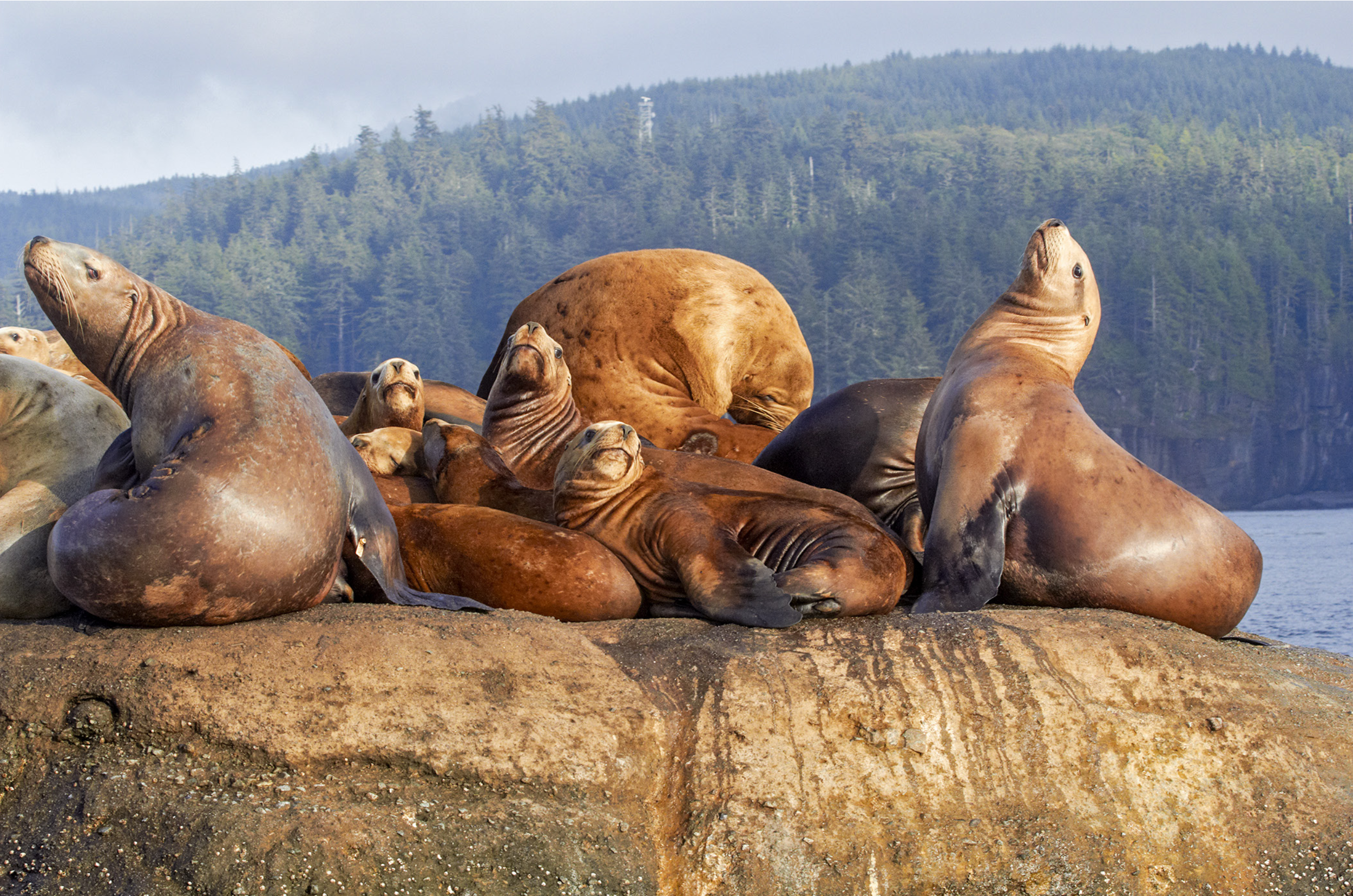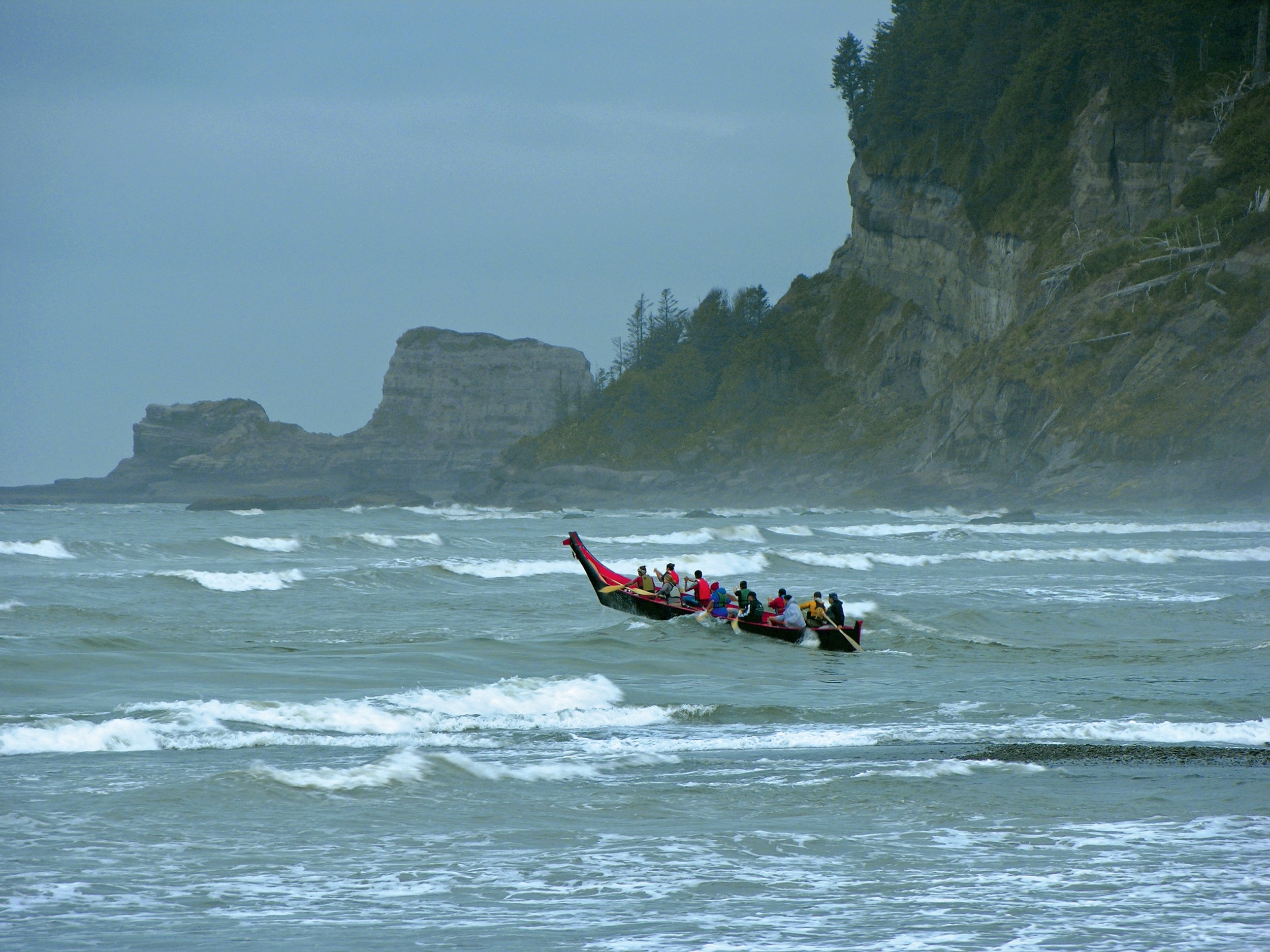
For tens of thousands of years, humans have thrived and strived in this remote corner of the Pacific Northwest.
Available October 1
Order it at:
BOOK CONTRIBUTORS
TIM MCNULTY
With Wendy Sampson, Loni Greninger, Gary Morishima, Maria Parker Pascua, Francine Swift, Jamie R. Valadez, and Lynda V. Mapes
Foreword by Fawn Sharp, President, National Congress of American Indians
Introduction by David Guterson
and Featuring Photography by more than a dozen regional photographers
In Salmon, Cedar, Rock & Rain, Tim McNulty explores the Olympic Peninsula’s complex—and ongoing—story of development, conservation, restoration, and cultural heritage, while writers from the Lower Elwha Klallam, Jamestown S’Klallam, Port Gamble S’Klallam, Makah Tribe, and Quinault Indian Nation share some of their own history, stories, and perspectives.
In the Pacific Northwest, many of us delight in Olympic National Park, a unique and magical UNESCO natural World Heritage Site, located right in our own backyard. Yet the famed park is just the center of a much larger ecosystem, a wild circle of rivers that encompasses ancient old-growth forests, pristine coastal expanses, and jagged alpine peaks, all possessed of a rich biodiversity. For tens of thousands of years, humans have thrived and strived alongside this natural world.
Perhaps no other region in the Northwest offers a history of such depth, nor a future ripe with so much potential.

About the Contributors
Tim McNulty
TIM MCNULTY is a poet, essayist, and natural history writer. He is the author of three poetry collections and eleven books on natural history, including Olympic National Park: A Natural History. Tim has received the Washington State Book Award and the National Outdoor Book Award, among other honors. He’s lived most of his life in the foothills of Washington’s Olympic Mountains and serves on the board of Olympic Park Advocates, a conservation organization that focuses on the Olympic ecosystem. His website is timmcnultypoet.com.
Fawn Sharp
FAWN SHARP serves as president of the National Congress of American Indians and is also the current vice president of the Quinault Indian Nation. She has dedicated her life to fighting to protect the sover- eignty, human rights, and cultural inheritances of all Tribal Nations. A human rights attorney by training, she was recognized in 2018 by the United Nations as one of the foremost experts on the human rights of Indigenous people globally. After graduating from Gonzaga University, Fawn received her Juris Doctorate from the University of Washington and advanced certificates from the National Judicial College at the University of Nevada and the International Human Rights Law at Oxford University. She has held numerous leadership positions in both the Quinault Indian Nation and in Washington State, was vice president and a founding member for the National Intertribal Tax Alliance, and has sponsored climate change initiatives in Washington and beyond. While she lectures all over the United States, she continues to live on the Quinault Reservation in Taholah.
David Guterson
DAVID GUTERSON is the author of twelve books, including the novel Snow Falling on Cedars and the book-length poem Turn Around Time. As an inveterate walker and a Northwest native, he has hiked and climbed widely in the Olympic Mountains. Two of his novels—The Other and Our Lady of the Forest—are set on the Olympic Peninsula.
Wendy Sampson
WENDY SAMPSON is a member of the Lower Elwha Klallam Tribe (LEKT); she lives on the reservation with her family. She has been a Klallam language teacher for twenty years. Her career began as a high school student hired to work with tribal elders as a teacher apprentice. After attending college she returned home and earned her Klallam language teacher certification in 2003 and eventually became the program manager. Wendy has provided cultural outreach in the schools, taught after-school programs and community adult classes, and worked under various grant projects with the goals of creating tribal history and language lessons and developing tools for language learning. She managed the LEKT Culture and Language program for ten years, overseeing the growth of the department and expansion of services until 2021. She is now a teacher for the Port Angeles School District offering courses in the Klallam language as well as history classes from a tribal perspective. Wendy remains dedicated to sharing her knowledge in an effort to continue revitalizing the Klallam language and culture in her community.
Loni
Grinnell-Greninger
LONI GRINNELL-GRENINGER currently serves her people as the vice chairwoman at the Jamestown S’Klallam Tribe, beginning her service in January 2020. She graduated with her bachelor of science degree in psychology from Pacific Lutheran University in 2012, and her masters of public administration degree with an emphasis in Tribal Governance from The Evergreen State College in 2016. After spending four years working for the Washington State Depart- ment of Social & Health Services in Indian Policy and as a tribal liaison for behavioral health services, she came home to Jamestown to serve her people. She currently serves as the department director of Social & Community Services. In both of her roles, she works closely with federal, state, and local governments, as well as numerous tribal and non-tribal organizations to engage in policy and cultural work for her tribe and on behalf of Indian Country.
Gary Morishima
GARY MORISHIMA is a technical advisor in Natural Resources and Environment and former forest manager for the Quinault Indian Nation. He has a PhD in quantitative science and environmental management from the University of Washington, where he is an affiliate professor in the School of the Environment and Forest Sciences. He is a member of several Pacific Salmon Commission Technical Committees and a former member of the Salmon Technical Team of the Pacific Fishery Management Council. He also helped found the Intertribal Timber Council.
Maria Parker Pascua (Hita·ʔa·ʔoƛ)
MARIA PARKER PASCUA (Hita·ʔa·ʔoƛ) is a Makah tribal member and lives in Neah Bay, Washington, where she teaches an online Makah language course through Peninsula College. She is a language specialist, Makah Language Program, at the Makah Cultural & Research Center Museum, a nonprofit charter organization of the Makah Tribe, and has her masters of education degree in Indigenous language revitalization from the University of Victoria. Her most recent publication, “Makah Language Dialogues,” from Appendix B of her master’s thesis in Indigenous language, was in response to COVID-19 isolation restrictions and the need to provide positive independent learning activities for adults in the Makah community. Besides her involvement in Makah song, dance, storytelling, weaving, and other cultural arts, she enjoys church and community activities, reading, writing, and music. She and her husband, Andrew, have five children and fourteen grandchildren.
Francine Swift (Wah-wash-a-lee)
FRANCINE SWIFT (Wah-wash-a-lee) is a member of the Port Gamble S’Klallam Tribe, a daughter of G. Jake and June Jones and granddaughter of Foster and Clara Jones and Wesley Jack and Gladys Brown. Francine is the mother of five children and grandmother to eighteen and a site manager for Northwest Indian College. A lifelong learner of academics and cultural teachings, Francine has had the privilege of serving her tribe as coordinator of longhouse carving and construction; she has also conducted oral interviews and compiled historical archives. Her father shared a lullaby, “Wah-wash-a-lee,” that had been recorded on clay cylinders and she chose it as the name for herself, earning it by helping two families to prepare for a naming ceremony.
Jamie R. Valadez
JAMIE R. VALADEZ, a Lower Elwha Klallam Tribal member, is a retired teacher of Klallam language and Native American history. Jamie is still active in the development of Klallam language teaching materials and currently working on a history of the Elwha Klallam Tribe. She also enjoys weaving baskets and is learning how to bead. As an elder of the tribe, she enjoys storytelling and providing cultural presentations.
Lynda V. Mapes
LYNDA V. MAPES is an award-winning journalist, author, and close observer of the natural world. She is the author of six books, including Orca: Shared Waters, Shared Home; Witness Tree: Seasons of Change in a Century Old Oak; and Elwha: A River Reborn. Lynda lives in Seattle where she covers nature, the environment, and tribes as a staff reporter for The Seattle Times.

Media & Press Inquiries
To request a press copy of this book, or set up an interview with one of the book contributors, please email Marissa Litak
marissal@mountaineersbooks.org.
For event inquires email
Erika Lundahl
elundahl@braidedriver.org.
About Braided River
Braided River is a conservation media and literary arts nonprofit founded in 2007.
Because we know that images and narratives transport audiences to places they may never otherwise see, we use visually rich multimedia campaigns to support democratic and community-based solutions to complex conservation and environmental justice issues facing wild and sacred life and lands in Western North America.
Through award-winning books, websites, traveling photography exhibits, multi-media events, and films, Braided River crafts compelling stories of biodiversity, local and rural economies, Indigenous stewardship, and climate change that build connection and inspire civic engagement.
Photo credits on this page
from top to bottom:
Top photo: Larry Workman
Second Photo: Larry Workman
Third Photo: John Gussman




